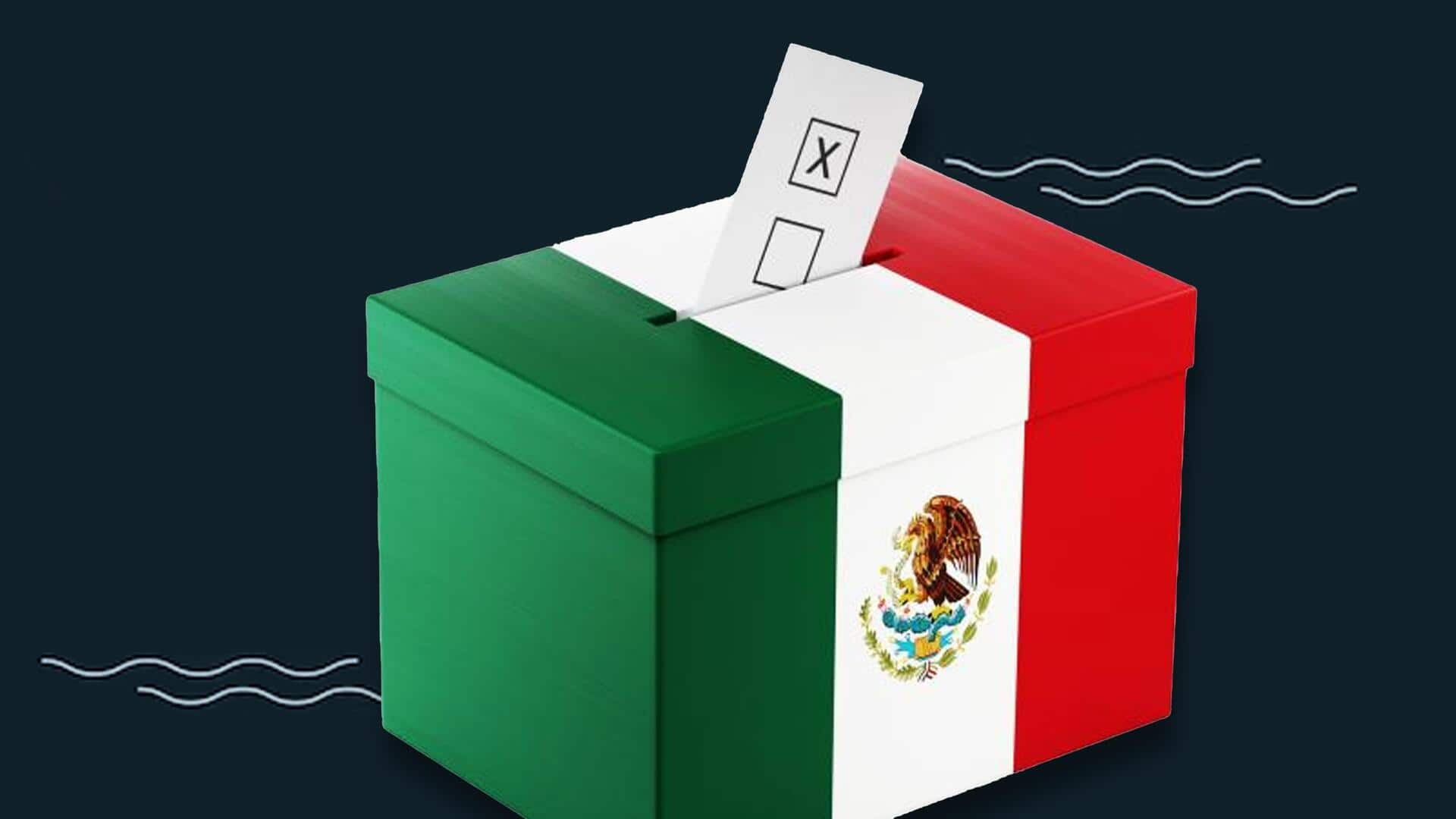
What to know about Mexico's upcoming historic elections
What's the story
Mexicans are preparing to cast their votes in a historic election this Sunday, with the nation's future trajectory hanging in the balance amidst escalating cartel violence. The election is particularly significant as it could result in Mexico electing its first female president, marking a profound shift from the country's long-standing "macho" culture. The National Electoral Institute has announced that over 20,000 congressional and local positions are being contested, making this the largest election ever held in Mexico.
Political opposition
Opposition and challenges in Mexico's historic election
Leading the presidential candidate is Claudia Sheinbaum, the former mayor of Mexico City, who is supported by President Andrés Manuel López Obrador's ruling Morena party. Opposition senator and tech entrepreneur Xóchitl Gálvez trails Sheinbaum. She represents a coalition of parties primarily united by their opposition to López Obrador. The third candidate, Jorge Álvarez Máynez from the Citizen Movement party, has focused on attracting young voters but has yet to gain substantial traction. The winner will serve a single six-year term.
Presidential influence
Lopez Obrador's legacy and impact on the election
President López Obrador, elected in 2018, continues to significantly influence these elections despite not being a candidate himself. In fact, Sheinbaum owes most of her popularity to Obrador, who has an approval rating of more over 60%. His popularity remains high among working-class and rural voters who felt overlooked by previous administrations. However, critics argue that his intolerance of criticism and oversight, along with his attacks on the judiciary and funding cuts to Mexico's electoral agency, have undermined Mexican democracy.
Rising tensions
Surge in violence amidst Mexico's largest election
For critics, this election has become increasingly about democratic concerns, which sparked large-scale demonstrations in February against Obrador's electoral reforms. This year alone, over 20 political candidates have been tragically killed as cartels and gangs compete for control. Violence has been particularly severe in areas where criminal gangs are vying for territory, such as Chiapas and Guerrero in the south and Michoacán in central Mexico.
Election cycle
What a female president would mean
The next president of Mexico will have a lot on their plates, including issues such as immigration, tense ties with the United States, and criminal violence that has killed over 450,000 people since 2006. These are in addition to the soaring levels of gender-based violence and deep gender disparities in the country. While Mexican women have risen to positions of political influence in public life, they face high rates of gender violence.